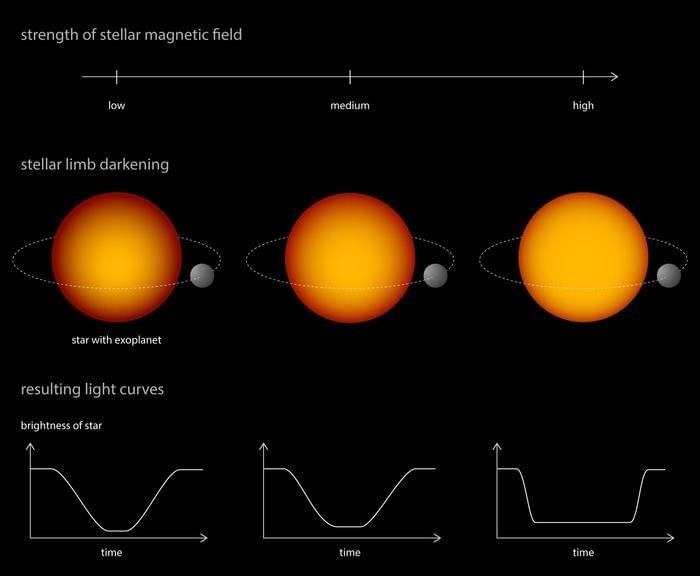“The problems arising when interpreting the data from WASP-39b are well known from many other exoplanets — regardless whether they are observed with Kepler, TESS, James Webb, or the future PLATO spacecraft,” said Dr. Nadiia Kostogryz.
While there is currently a myriad of techniques used to both discover exoplanets and calculate their physical characteristics, could other methods be developed to overcome specific data errors? This is what a recent study published in Nature Astronomy hopes to address as an international team of researchers investigated how a star’s magnetic field can be used to ascertain additional data for an exoplanet, which is traditionally done using conventional exoplanet detection methods, specifically the transit detection method. This study holds the potential to help astronomers establish new methods for discovering and characterizing exoplanets throughout the cosmos.
For the transit method, an exoplanet passes in front of its parent star, causing its starlight to slightly decrease and has been instrumental in discovering and characterizing thousands of exoplanets. However, astronomers have also discovered that a star’s limb darkening, which is the observed edge of the star, causes errors in transit light curves for exoplanets, despite using state-of-the-art atmospheric models to predict observations.
For the study, the researchers focused on WASP-39b, which is a gas giant located approximately 700 light-years from Earth and has been studied in great detail using a myriad of space telescopes, and most recently with NASA’s James Webb Space Telescope (JWST). However, astronomers have discovered inconsistencies between models and observations, which this study hopes to overcome.










Comments are closed.